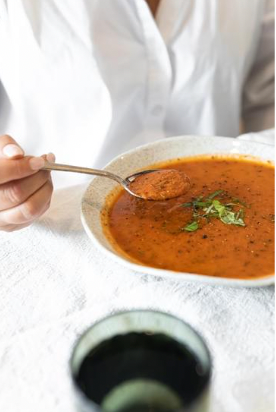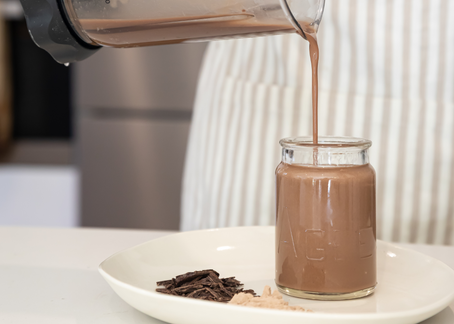Sometimes we overeat because we have become disconnected with food. We can find ourselves eating without thinking, without tasting. When we fail to notice what we eat, we can become more likely to overeat.
Developing a respect and mindfulness about food can help us only eat when we are hungry, stop when we are full and make healthy food choices that will help you to lose weight.
What is mindful eating?
Mindfulness is a calm, mental state achieved by focusing on the present moment. It brings a quietness, that helps us to notice our bodily senses, our thoughts and feelings. Mindful Eating encourages us to fully engage in the process of eating, paying attention to the experience and considering every bite and sip.
It helps us slow down, observe and appreciate and this can play a helpful role in weight loss.
How do I practice mindful eating?
Be aware of your hunger
Before you eat, ask yourself if you are truly hungry? Often we eat because we are bored, or anxious, or because it's 12 o clock. Before you go to eat, stop and put your mind into your stomach. Are those truly hunger pains? Listening to your body, and eating only when you hear it say it is truly hungry, is the first step to eating mindfully and is key to weight loss.
If your body isn’t telling you it’s hungry, listen to it and go and do something else (if you're actually bored then perhaps read a book or go for a walk). If your body is hungry, pay close attention to how that actually feels. Notice the noises, the feelings, the sensations in your stomach. Getting to know this feeling will help you better identify when you are eating for reasons other than hunger. Try to ensure you embrace this top tip that will help you each day too.
Sit down to eat without distraction
When we eat while watching Netflix, or snack standing up in the kitchen, we cannot be fully present. This can lead to overeating. Remove all the distractions and sit down with your plate in front of you.
Look
Take a few seconds to look closely at your meal. See the different colours on the plate, the textures, the shapes. Let the beauty of your meal lift your spirits. If your meal doesn’t look beautiful, you may like to rethink your choice. I’m not saying every meal needs to be gourmet, but when we take time to prepare meals that excite our senses, we are more likely to make healthy choices. A plate of chicken nuggets probably isn’t going to look that gorgeous.
Smell
Now close your eyes and lean into your meal and smell. Take some deep breaths, letting the scents waft over you.
Taste
Keeping your eyes closed, take one small piece of food and slowly put it in your mouth. Let is sit on your tongue for a moment. Chew slowly, enjoying the flavours, the textures.
Eat slowly
Now take your time with the meal. Eat slowly and intentionally. Keep noticing the tastes and textures and smells with every bite. Because our stomach takes about 20 minutes to send the message to our brains that we are full, eating too quickly can cause us to overeat. Taking time to eat means that you are more likely to stop when you get full.
By eating mindfully, you focus your attention and slow down, making eating an intentional act instead of an automatic one. It helps you to discern when you are really hungry and also when you are really full. Eating can become a blessing instead of something that sabotages our weight loss.
Take time today to focus on your eating with consideration and thought.






















